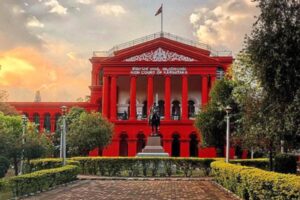
As India marked 75 years of its Constitution, the Third Law & Constitution Dialogue brought together leading voices to reflect on its legacy. Among the standout sessions was a dialogue with Member of Parliament and former Union Minister Manish Tewari, moderated by Priya Sehgal, Editorial Director of NewsX. The conversation highlighted the Constitution’s resilience, its challenges, and its role as a cornerstone of Indian democracy.
Success Story of Constitutional Resilience
Manish Tewari began by lauding the Indian Constitution as a document that has not only endured but thrived. He attributed much of this success to the judiciary, particularly the Supreme Court’s role in upholding the Constitution’s integrity.
Tewari singled out the 1973 Supreme Court judgment on the basic structure doctrine as a landmark in Indian legal history. “The Constitution has not only endured but thrived,” he remarked, emphasizing how this doctrine has safeguarded the nation from amendments that could undermine its democratic foundations.
Judiciary and Parliament: A Delicate Balance
The discussion delved into the complex interplay between Parliament, representing the sovereign will of the people, and the judiciary, acting as the ultimate constitutional arbiter. Tewari acknowledged this inherent tension but underscored its necessity in a functional democracy.
“Parliament is a creation of the Constitution, and so is the judiciary,” he noted, highlighting the importance of maintaining the doctrine of separation of powers. While criticizing the “whip-driven tyranny” in Westminster-style democracies that stifles legislative independence, Tewari commended the judiciary for serving as a check against executive overreach through judicial review.
Federalism and the Center-State Dynamic
Tewari addressed the imbalance between the central and state governments as one of the Constitution’s enduring challenges. He traced the roots of this disparity to the partition era, which necessitated a strong central authority.
Quoting Article 1 of the Constitution—“India is a Union of States, not a State of Unions”—Tewari argued that the federal structure has often tilted in favor of the center, curbing states’ legislative autonomy. Strengthening federalism, he suggested, would require a recalibration of power-sharing mechanisms to give states greater authority.
Secularism and Historical Narratives
Tewari weighed in on the ongoing debates around secularism and historical revisionism. While reaffirming India’s pluralistic constitutional framework, he warned against looking at the nation’s future through a “rearview mirror.”
“Looking at India’s destiny through a rearview mirror does not serve the republic,” he cautioned, emphasizing the need for forward-thinking policies that prioritize unity over division. His comments reflected a call for moving beyond divisive narratives to focus on nation-building.
Expanding Parliamentary Seats: A Double-Edged Sword
On the proposal to expand parliamentary seats to better represent India’s growing population, Tewari expressed skepticism about its feasibility. He stressed the importance of maintaining efficiency within the legislative system, suggesting that robust committee structures could address concerns of underrepresentation without compromising functionality.
One Nation, One Election: A Cautious Stance
Regarding the contentious proposal for simultaneous elections, Tewari adopted a cautious approach, urging a comprehensive review of legislative drafts before forming an opinion. He questioned the financial rationale behind the proposal, pointing out the logistical and constitutional challenges in synchronizing electoral cycles across the nation.
A Living Document for a Dynamic Nation
Tewari concluded by emphasizing the Constitution’s adaptability as its greatest strength. “It is a living document, shaped by over 100 amendments to reflect the changing needs of society,” he stated. However, he cautioned against selective interpretations that prioritize ideology over inclusivity, urging stakeholders to view the Constitution as a unifying framework for all Indians.
The Constitution’s Role in Shaping India’s Democratic Journey
The session with Manish Tewari underscored the Indian Constitution’s dynamic nature and its pivotal role in the nation’s progress. As India continues to evolve, the Constitution remains a testament to its democratic ideals, balancing continuity with change.
The dialogue highlighted not only the achievements of the past 75 years but also the challenges ahead, offering a roadmap for strengthening India’s democratic and constitutional framework for generations to come.




